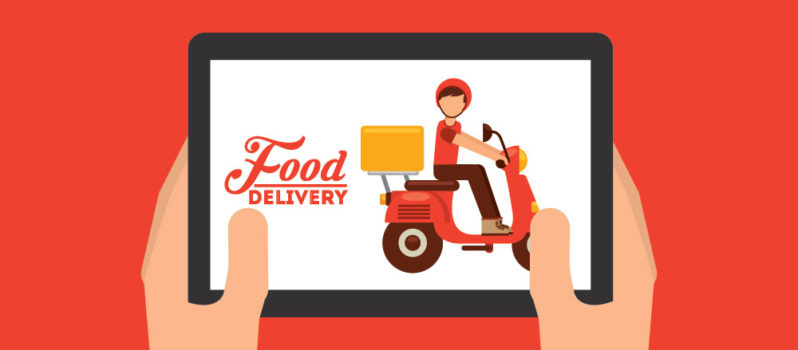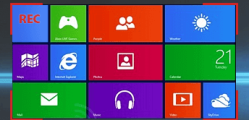According to the National Restaurant Association, 69% of adults said purchasing meals from take-out and delivery restaurants makes it easier for families with children to manage their day-to-day lives. It’s clear that consumers are increasingly relying on modern conveniences to fulfill their hunger needs and this recent explosion of demand has caused the latest disruption to the restaurant industry – delivery apps and services. As the latest hospitality tech boom is expected to grow by 51% by 2021 according to the latest research from Euromonitor International, growth like that can only mean one thing – restaurateurs must embrace the movement and leverage the technology needed to accommodate off-premise dining or get left behind.
Here’s a quick overview of some of the top delivery apps and platforms for both diners and operators. Want to know more about the benefits to using them? Check them out here:
UberEATS –
For the diner: Uber fans rejoice! They’ve now taken their concept to the food service and hospitality industry. The same conveniences that are offered with catching a ride are now offered with ordering take-out food for delivery. With options to download the app on both iTunes and Google play, diners can make their dining choices from anywhere with the tap of a button. The app even detects the user’s location and then serves up restaurants near them that are open. For payments, it’s super easy! Diners can pay using the same credit card on file for their Uber app and the fee is $4.99.
For the operator: Do more business with UberEATS. They offer to not only promote your restaurant and menu, but to help improve your pickup and delivery times. They offer order tracking once the order leaves your restaurant, so you and your diner can visually see where the order is offering a better guest experience for your diners.
GrubHub –
For the diner: When they’re hungry for some grub – they turn to GrubHub. More than 9.18M active diners have turned to them for food. This delivery app has options in both the iTunes store and Google Play, as well as an option for the diner to order their delivery food from their website. Diners can view restaurants near them based on location or based on an address entered, they can sort by rating, price, delivery time, coupons available, and order tracking availability. They can even browse menus. As an added bonus, for the super tech savvy person, they have an Amazon Alexa skill that allows for voice-activated ordering. Paying is easy with GrubHub, diners can use either cash, credit or PayPal.
For the operator: GrubHub for restaurants touts a 50% increase in average monthly orders after using their delivery service for a year. That stat is undeniably an impressive way to affect a restaurant operator’s bottom line. By using their service, you can manage your orders from any device, anywhere and you don’t have to worry about hiring or paying delivery drivers – they take care of all of that for you. How does payment work? Well, you only pay when they send you orders.
DoorDash –
For the diner: As of March 2017, DoorDash had more than 54,000 active restaurants for diners to choose their take-out order from. Like all the other delivery apps, DoorDash can be downloaded on both iOS and Android phones and has a website for ordering. Their real-tracking capabilities allow diners to follow along as their order starts heading their way and delivery fees start as low as $0.99.
For the operator: DoorDash for restaurants advertise they are easy to implement and they “work with what you have.” Essentially, they can send orders to your site via fax, computer or tablet. Their technology provides a comprehensive dashboard of stats and figures to monitor and get a clear picture of your delivery orders and how they are affecting your bottom line. Within their dashboard, you can view number of orders, average order amounts, number of unique customers, net sales and more. Like other delivery apps, they are continuously expanding their reach. Currently, they are servicing 250+ cities. Check them out to see if they’re in your area.
Seamless–
For the diner: With over 12,000 restaurants and 80+ cuisine types there’s something for everyone. With this app, diners can browse menus, view ratings, read reviews and of course order their meal on the go. There are order minimums and delivery fees start at $3. Payments can be made with either cash, credit card or via PayPal.
For the operator: Seamless was acquired by GrubHub in 2013. The diner app still operates under the brand of Seamless, but for restaurant operators, they are directing you to GrubHub’s restaurant page.
ChowNow–
For the diner: Most diners will come across ChowNow when looking for something specific to eat and that’s because their technology is embedded into restaurant operator’s website or fueling their apps and the diner doesn’t even know it!
For the operator: ChowNow is an online ordering platform that has an integrated delivery component for restaurants. Unlike all the other delivery apps and platforms mentioned here, ChowNow is the only one that also allows restaurant operators to order their take-out for delivery directly from the restaurant’s own branded website or app. They take the third party out of the equation. With their dashboards, operators can see a breakdown of their take-out vs. delivery revenue and restaurant data you need to understand how off-premise dining is affecting your bottom line. One of the coolest features of ChowNow’s Flex Delivery is their zone control functionality. Should operators have their own in-house delivery drivers, they can set zones as to how far their drivers will go and then allow ChowNow drivers to deliver outside those areas. Pricing ranges from $99 – $149/month depending on contract length.
There’s no doubt that the convenience of sitting at home and having your food delivered appeals to most consumers. As an operator, it’s time to jump on the off-premise dining bandwagon. These top 5 delivery platforms offer benefits that can’t be ignored, like:
Boosting your volumes and your bottom line with increased take-out sales
New marketing with lower costs
The ability to collect data and remarket to diners
Happier guest experiences – meeting diners where they are
Creating loyal customers – with added conveniences being met, you’re sure to create lasting impressions and loyal customers that will come back to order time after time
Want to learn how off-premise dining works for a restaurant? Download our off-premise dining infographic to learn how to overcome delivery challenges and create an overall well-connected restaurant. QSR’s industry leading kitchen display system can help automate your delivery experience and provide real-time order tracking.
About the Author
Emily Wimpsett is a Content & Social Media Specialist at QSR Automations. Emily was born and raised in Louisville but considers herself a die-hard University of Kentucky fan. For college, Emily attended Indiana University Southeast and obtained a degree in Communications with a track in Advertising. In her free time, Emily enjoys just about every water related activity but she is partial to kayaking and whitewater rafting.




Leave a Reply